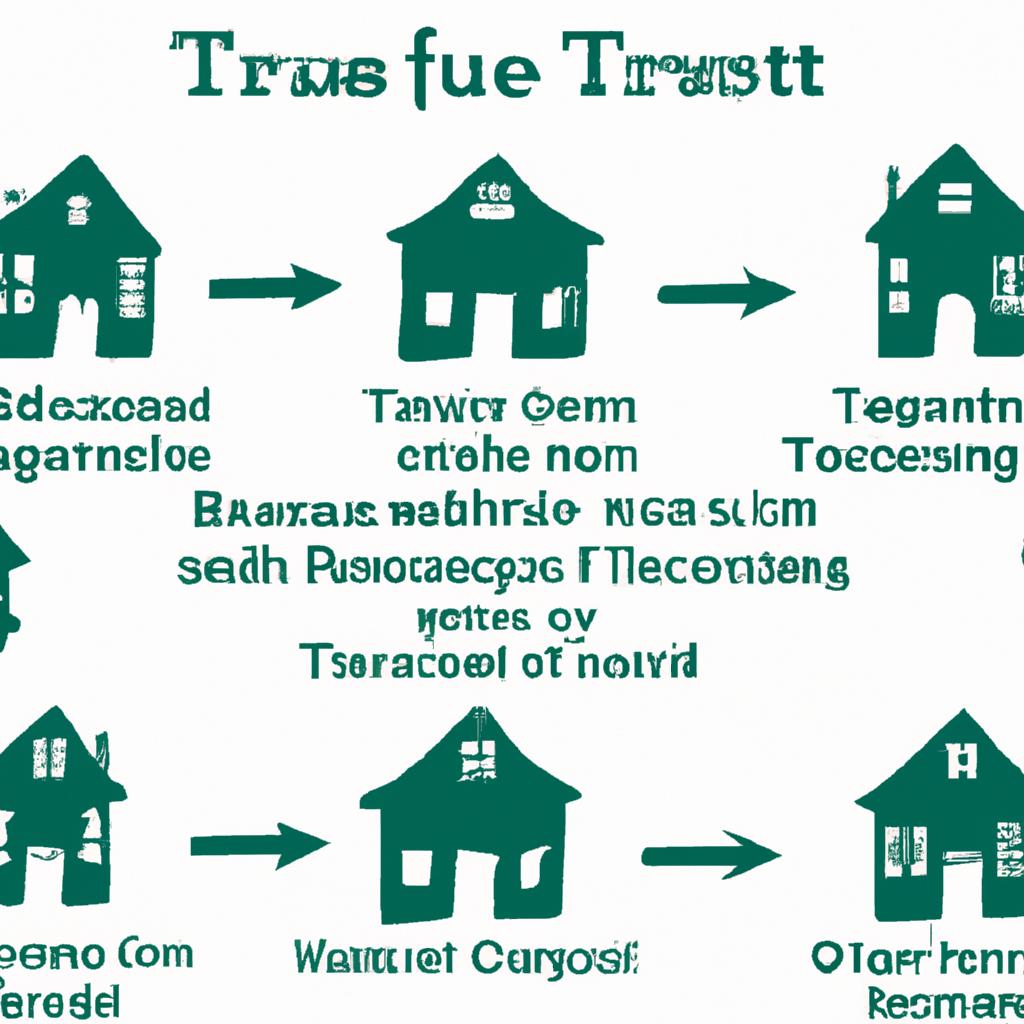As experienced legal professionals at Morgan Legal Group in the heart of New York City, we often encounter individuals seeking a comprehensive estate plan that will provide for their loved ones in the future. One common question that arises in these discussions is: “Can I put my house in trust for my children?” In this article, we will delve into the complexities of establishing a trust for your home and explore the potential benefits and considerations of such a decision. Join us as we navigate the intricate world of estate planning, probate, elder law, Wills, and trusts to ensure your legacy is protected for generations to come.
Potential Benefits of Putting Your House in Trust for Your Children
One potential benefit of putting your house in trust for your children is that it allows you to avoid probate. Probate can be a lengthy and costly process, but by transferring your home into a trust, you can ensure a smooth transition of ownership to your children upon your passing. This can save your loved ones time and money, as well as provide them with peace of mind knowing that your wishes are being carried out efficiently.
Another advantage of placing your house in trust for your children is that it can help protect your assets from creditors. By placing your home in a trust, you can establish certain conditions or restrictions on how the property can be used. This can help shield your home from any potential legal claims or financial liabilities that your children may face in the future. Additionally, a trust can provide privacy for your family, as it avoids the public nature of probate proceedings, ensuring that your affairs remain confidential.
| Advantages of Putting Your House in Trust | |
|---|---|
| Avoiding probate | Protecting assets from creditors |
| Efficient transfer of ownership | Privacy for your family |
| Cost-effective estate planning | Flexible control over property |

Considerations Before Putting Your House in Trust
Before putting your house in trust for your children, there are several important considerations to keep in mind. One key factor to consider is the type of trust you plan to create. Different types of trusts have different implications for tax purposes and asset distribution. It is crucial to consult with an experienced estate planning attorney to determine the best trust for your specific situation.
- Legal Implications: It is important to understand the legal implications of putting your house in trust for your children. This includes ensuring that the trust is properly drafted and executed according to state laws.
- Asset Protection: Putting your house in trust can provide asset protection for your children in the event of creditors or legal claims.
- Control: Consider whether you want to retain control over the property during your lifetime or if you want to transfer ownership to your children immediately.

Types of Trusts to Consider for Transferring Your House to Your Children
When considering transferring your house to your children, setting up a trust can be a wise decision to ensure that your property is passed down smoothly and efficiently. There are several types of trusts to consider, each with its own advantages and considerations. Here are some common types of trusts that you may want to explore:
- Revocable Living Trust: This type of trust allows you to maintain control over your property during your lifetime, while also providing a smooth transition of ownership to your children upon your passing.
- Irrevocable Trust: By placing your house in an irrevocable trust, you can protect it from creditors, estate taxes, and probate costs. This option may offer more asset protection, but it also limits your control over the property.

Legal Requirements and Steps to Transfer Your House into a Trust
When considering transferring your house into a trust for your children, there are several legal requirements and steps that must be followed to ensure a smooth and successful transition. One of the first steps is to consult with an experienced estate planning attorney to determine if a trust is the best option for your specific situation. Once the decision to proceed with a trust has been made, the following steps should be taken:
- Choose the type of trust: There are various types of trusts available, each with its own set of rules and benefits. Your attorney can help you select the most appropriate trust for your circumstances.
- Transfer the property: The next step is to transfer the title of the house into the name of the trust. This typically involves filing a deed with the county recorder’s office.
- Update beneficiary designations: It is important to update any beneficiary designations on the property to ensure that it is properly transferred to the trust upon your passing.
Q&A
Q: Can I put my house in trust for my children?
A: Absolutely! Putting your house in a trust for your children is a common estate planning strategy.
Q: How does putting my house in trust benefit my children?
A: By placing your house in a trust, you can ensure that your children will have a secure place to live after your passing. It also allows you to avoid the probate process, potentially saving time and money for your loved ones.
Q: What are the different types of trusts I can use for my house?
A: There are various types of trusts that can be used for this purpose, including revocable trusts, irrevocable trusts, and living trusts. It is advisable to consult with a trusted attorney or financial advisor to determine the best option for your specific situation.
Q: Are there any drawbacks to putting my house in trust for my children?
A: While there are many benefits to placing your house in trust, it is important to consider potential drawbacks, such as loss of control over the property and possible tax implications. Consulting with a professional can help you navigate these potential challenges.
Q: How do I go about putting my house in trust for my children?
A: The process of creating a trust for your house can vary depending on your location and individual circumstances. It is recommended to seek guidance from a legal professional to ensure that the trust is established properly and meets your specific needs.
The Way Forward
In conclusion, putting your house in a trust for your children can be a beneficial way to secure their future and protect your assets. However, it is important to weigh the pros and cons, and seek professional advice to ensure that it is the right decision for your individual circumstances. By carefully considering all factors and exploring all options, you can make an informed choice that will benefit both you and your loved ones in the long run. Trusts can provide peace of mind and security, so take the time to carefully consider if this is the right choice for you and your family.






